Carla Allen’s voice shakes as she recalls the brief conversation she had with her daughter’s killer.
“He called and asked me for forgiveness,” says Allen. “He said, ‘That was my friend. I didn’t mean to hurt my friend.’”
The call came two years ago, just days after the May 30, 2011, killing of her 16-year-old daughter – who, like her mother, was named Carla.
Despite the killer’s dramatic confession to Allen, no charges have been filed. Allen says a key witness came forward but

later retracted his story after landing in jail.
The mother’s living room in the 5400 block of South May Avenue still reflects the teenager’s life and death. Childhood photographs of Carla, Girl Scout trophies and awards cover one wall of the small room. Funeral programs and memorabilia surround the urn where the family keeps her ashes.
Friends and family describe Carla as a girl with a big personality and big dreams.
For one thing, her mother says the young woman knew how to make an entrance, even in a modest apartment.
“She’d walk in saying, ‘The diva is home,’” Allen recalls.
The teen’s brother, Johnathan Allen, says she sometimes took on the role of being the older sibling, despite being three years younger.
“I remember when I was in my party phase,” he says. “I used to always have people over, and Carla would always say she was going to tell [our] mom. She never did, until one day she was fed up and she told.”
Her friend Genise Chambers treasured the relationship she had with Carla.
“She was my only real friend,” Chambers says.
After a chance meeting in the school hallway over a pair of shoes, Chambers says she and Carla became inseparable.
“When we met I saw her walking in the hallway, and I saw her wearing the new gym shoes that I had ordered,” says Chambers. “I didn’t think anyone else would have them, so I stopped her.”
For the next two years, Chambers says she and Carla, though two years apart in age, spent most days hanging out or talking on the phone before and after school.
“I don’t have a sister, so she was my younger sister,” Chambers says. “I couldn’t have a bond with anyone else like the one I had with Carla.”
Chambers says she’s still confused about what happened to Carla, adding that she had just spoken with her friend about getting together to hang out.
“I told her, ‘Sister, don’t go anywhere. I’m going to come get you.’ And she said, ‘OK.’ That was the last I heard from her.”
There are different accounts about how Carla died. But most agree on this basic scenario: Carla was a passenger in a vehicle sitting at a stoplight when another vehicle pulled up and opened fire.
Her brother says he learned minutes after the shooting what had happened from neighbors who were banging on the entrance to his apartment with the news that his sister had been shot.
Johnathan Allen called his mother at work, then headed to Sherman Park to get more information.
“My first reaction was, ‘Carla who?’” says her mother. “I couldn’t believe it.”
When she arrived on the scene, the police had already blocked off the vehicle from public view.
After talking with officers, Allen said she was allowed to see her daughter, although she did not allow her son to watch as his sister was removed from the vehicle.
“I don’t care what state she’s in, this is my child,” her mother remembers thinking. “I’ll always be able to look at her.”
Her voice lowers to a whisper and a single tear streams down her face as she remembers how police removed her lifeless daughter from the passenger seat.
“It’s an image that sticks with you for the rest of your life,” she says.
Hours later, Carla’s friend got the news when her brother came running into her room about 4 a.m. after seeing Facebook posts about the murder.
“He said, ‘Have you heard about Carla?’ Then he showed me his phone,” says Chambers. “It was shocking. I called her mother at 4 in the morning because I couldn’t believe it.”
Chambers, who got a tattoo of Carla’s name on her arm the day after the murder, misses everything about her friend.
So does Carla Allen, who days after her daughter’s murder received the killer’s apologetic call.
During that conversation, she and her cousin, who was also on the line, tried to convince the shooter to turn himself in.
Allen still seethes about his refusal to admit his guilt.
“I was raised in a different era where if you do something horrific, you don’t buckle under pressure – you take responsibility,” she says.
The police have been active in pursuing the case, Carla Allen says, but there seems to always be a roadblock that prevents the killer from being arrested.
She provided police with the phone number of the person who called to confess, but they didn’t get any leads because no one answered, she says. Carla’s cell phone was taken from the van after the shooting and later used, her mother says, but nothing has come of that possible clue.
Chicago Police officials declined to discuss the status of Carla Allen’s case, but the department’s director of news affairs, Adam Collins, responded to general questions about unsolved cases in a written statement.
The statement reads, in part: “The Chicago Police Detectives work tirelessly to solve every murder, bringing justice to criminals and closure to victims and their families.”
Allen says the driver of the shooter’s car is now in jail on drug charges but has retracted his testimony, which included identifying the man who fired the gun.
Allen blames the “no snitching” rule, which police say hinders many of their homicide investigations.
“He was cooperating until he went to jail,” she says. “I think he thinks that [if he tells], it’s easier for them [the shooter’s allies] to get him in there.”
To be able to move on with her life, Allen wants her daughter’s killer to be prosecuted.
“I hope the day comes where the individual is held accountable for what he did to me and my family,” says Carla Allen. “It’s not gonna bring her back, but at least I know he can’t harm another family.”
This story is part of a week-long series about homicides in Chicago. ChicagoTalks, a news outlet operated by Columbia College’s Journalism Department, undertook a semester-long investigation of the topic funded with a grant from The Chicago Community Trust. ChicagoTalks is publishing additional stories throughout the week. If you have questions or comments, please e-mail project editor Suzanne McBride at smcbride@colum.edu.
Read more from this series:
- Argument over basketball game takes parents’ only child
- Family seeks answers after 8th grader’s murder
- Family, friends of murdered Uptown businesswoman say they have been left in the dark
- Lonely anniversary
- For some, the grieving never ends
- Families say silence the norm after Chicago homicides
- Homicide victim’s mother sees progress in Englewood
- Giving up on justice
- Families question support after loved ones’ killings
- Unsolved homicide not forgotten
- Final call to a friend

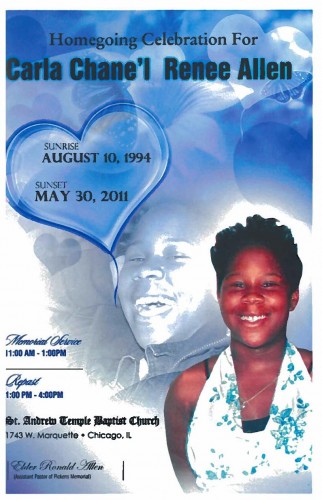










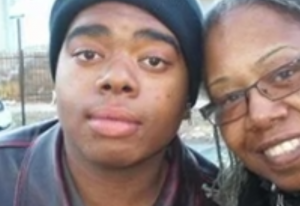
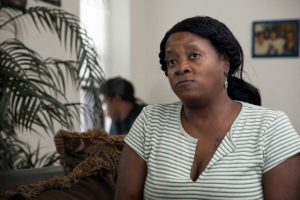
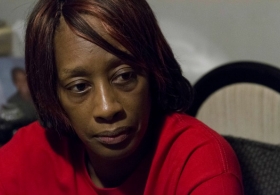





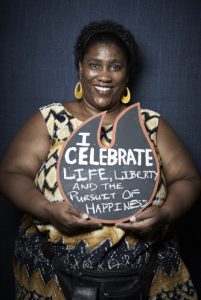

Be First to Comment